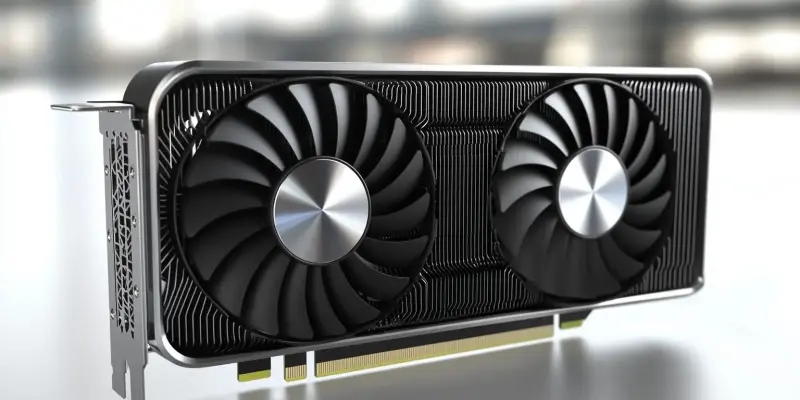As NVIDIA prepares to launch the GeForce RTX 5050, the budget graphics card market is poised for increased competition. NVIDIA’s new entry in the 50 and 60 class GPUs will feature GDDR6 memory, making it a cost-effective yet powerful option. By focusing on affordability without major performance cuts, NVIDIA aims to attract gaming enthusiasts seeking value. This move targets AMD’s RX 9050 series and Intel’s Arc B580, both of which are strong in offering value-driven GPUs.
The RTX 5050 is expected to have 8 GB of GDDR6 memory, a total board power (TBP) of 135W, and a price range between $199 and $249. The choice to use GDDR6 instead of the pricier GDDR7 highlights NVIDIA’s strategy to balance cost and performance. Memory type is crucial for pricing and performance, and NVIDIA’s use of GDDR6 aims to make the RTX 5050 both financially attractive and capable.
NVIDIA has historically led the mid-range market, but AMD’s recent RX 9050 models have challenged that. With the RTX 5050, NVIDIA aims to regain lost ground, especially since they skipped the 50-class GPU during the Ada Lovelace era. This gap allowed competitors to rise, and the RTX 5050 represents a strategic effort to reclaim dominance.
Overall, the RTX 5050 showcases NVIDIA’s effort to meet demand for budget-friendly, high-performance GPUs. It marks NVIDIA’s reentry into the 50-class market and could reshape competition. By delivering strong performance-per-dollar, the RTX 5050 could reestablish NVIDIA’s standing against AMD and Intel’s latest offerings, potentially altering user expectations and market dynamics in the evolving graphics card industry.

